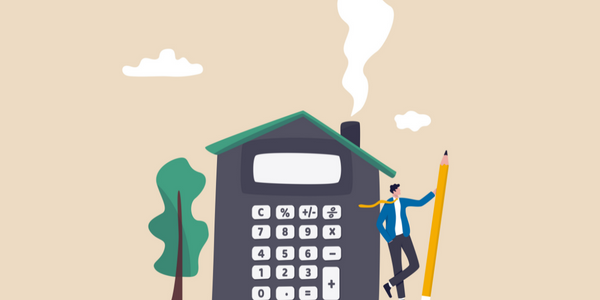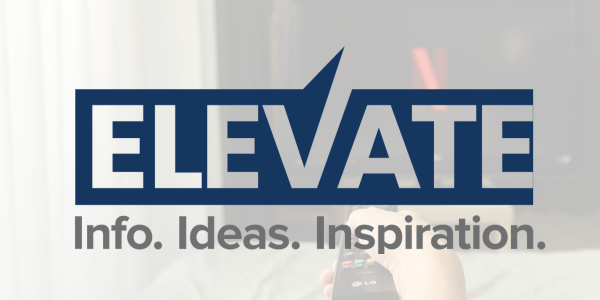
REACH YOUR GOALS
Combine Open Enrollment with a Savings Checkup
It's tempting to go through open enrollment quickly, especially if you plan on keeping the same coverage for 2026. But it's also a great opportunity to take a closer look at any benefits you overlooked in previous years. Some could save you money. So, before you complete your benefits enrollment, carve out some extra time to review the year's finances and look for new savings.

Reassess your coverage, comparing it to your 2025 health and dental expenditures. You may be able to save by changing plans.
Review your wellness program if offered (these are often on different websites than other benefits). These programs may include gym and fitness membership discounts, details of local exercise and healthy lifestyle groups, mental health sources, and phone apps for relaxation and meditation.
If you don't have a Health Savings Account (HSA) or Flexible Spending Account (FSA), opening one could help you save on medical expenses. You may qualify for a Dependent Care FSA if one or more children live with you, or are a caregiver to a parent or older relative who lives in your home.
Open enrollment is also an ideal time to revisit your retirement contributions. Increasing contributions to a 401(k) or other workplace plan by just 1% can potentially lead to growth over time through the power of compounding.
Review your enrollment options for additional benefits. You may be able to purchase disability and/or life insurance, qualify for tuition reimbursement, or enroll in a legal assistance program.
Turning open enrollment into a built-in annual check-up can be one more step toward taking charge of long-term financial health. Want to make sure 100% of your bases are covered for 2026? Contact me for a complimentary mortgage check-up.
Source: empower.com
MORTGAGE IQ
The Fed Cut Rates...So Why Did Mortgage Rates Go Up?
In late October, the Federal Reserve announced another rate cut which was the second of 2025. However, mortgage rates didn't go down...they went up. This confused more than a few consumers and was a setback for those considering buying a home soon.
The average rate on 30-year mortgages jumped 20 basis points after Chairman Jerome Powell announced the cut and followed it with a news conference. One reason for this: during the conference, Powell stated that another interest rate cut in December was "far from" certain, even though the third cut was highly anticipated by the bond market.
After hearing this statement, the bond market reacted by sending the 10-year Treasury yield, which is a key indicator for mortgage rates, back above 4%.
Matthew Graham, chief operating officer at Mortgage News Daily, commented: "The market was nearly 100% certain of another cut in December. The Fed was not as certain, and Powell made it a point to say so yesterday."
Source: cnbc.com
FINANCIAL NEWS
Cash Feels Like Real Money...But We Don't Spend Much of It
In an era of Apple Pay and digital wallets, some Americans still prefer to carry cash. However, only 18% find themselves paying with cash daily. These and other facts were the result of a mid-year survey "The Vanishing Wallet".
Currently, 38% of Americans describe cash as feeling more "real" than digital money and describe dollar bills and coins as a tangible reminder of the value of money. This doesn't mean they always carry cash, though. While one in five consumers say they only shop with cash a few times a year, more of them (25%) often find themselves wishing they had cash on hand.
Respondents preferred cash when splitting a restaurant bill with friends, tipping servers, giving children their allowances, and when shopping at small businesses.
The popularity of cash may be linked to the economic climate, as 25% of survey respondents viewed cash as a safety net in times of financial downturns, and 20% have increased their physical cash holdings within their home due to market uncertainty.
Here are some other survey results:
- Nearly four in 10 Americans say each generation relies less on cash than the one before it (37%).
- Gen Xers between 45 and 60 years old carry more cash than other generations, averaging between $101 and $200.
- Two in five respondents say they felt safer keeping cash on hand in case of emergencies or tech outages. Preserving one's privacy in a digital world was another reason some (21%) preferred cash.
- While 55% would put $10,000 into a high-yield savings account, 40% would keep it as cash for safety.
- For anyone who sometimes succumbs to impulse buys, they're often more able to resist temptation if they carry cash for shopping instead of one-click digital payment methods.
If you'd like to check out other survey results, visit Empower's The Vanishing Wallet study online.
Source: empower.com
DID YOU KNOW?
Why and How Solar Panels' Benefits Have Changed
Rooftop solar energy systems have steadily become more popular with homeowners. As other forms of energy become more expensive, solar was marketed as an affordable option. However, there are reasons for treading carefully when shopping for a solar panel system or leasing one.
One reason for caution is that there have been an increasing number of bankruptcies within the industry. Customers who expect support from the company who installed their system may find out that they've gone out of business. There are even cases of homeowners who receive demands for payments for a solar energy system that isn't working.
Tariffs and inflation are also having a negative effect across the board. In addition, many government incentives, tax credits, and lower interest rates that encouraged homeowners to go solar have mostly disappeared or will expire at the end of 2025. You can research solar and other clean energy incentives at the DSIRE web site.
If you're still planning to install solar panels, you'll want to do your homework. In addition to visiting the Better Business Bureau's website, you may also want to visit SolarReviews to learn more about products, services, and installers.
Source: kiplinger.com
PERSONAL FINANCES
Consumers' Financial Fretting at Five-Year High
As the employment market cools and sticky inflation continues to raid our budgets, these stresses are taking their toll on American consumers. This has contributed to an increasingly common scenario: people are seeking legal advice to discuss possible solutions to their growing money problems, including bankruptcy.
According to data from legal services provider LegalShield, bankruptcy inquiries surged 17% during the third quarter of 2025, continuing an upward trend that began in late 2021. This helped to push the Consumer Stress Legal Index (CSLI) up 4.4% between June and September of this year to its highest level since March 2020.
A LegalShield senior vice-president commented: "We're seeing families hit crisis mode heading into the holidays—especially around unsecured debt and rising housing costs."
Despite robust gross domestic product (GDP) growth and signs of impressive corporate earnings this year, many consumers feel that these numbers provide them with little or no benefits. Surveys conducted by accounting firm Deloitte and the University of Michigan found that consumer confidence continues to decline, and that many households are feeling pessimistic about their own finances and the overall state of the economy.
Source: newsweek.com
FOOD
Cheddar Broccoli Cauliflower Gratin
This healthy, warming side dish is ideal for winter family dinners. Guests will also enjoy this Cheddar Broccoli Cauliflower Gratin on its own, or as a side with poultry or beef.
AROUND THE HOUSE
How To Foil Holiday Porch Pirates
This year, millions of holiday gifts will be ordered online and delivered outdoors...and some will be stolen by thieves, nicknamed "porch pirates". Over 50% of Amazon customers report losing at least one package to a porch pirate.
While installing a front door security camera helps reduce theft, around 30% of homes with these cameras still lose packages to thieves. Here are some additional methods for keeping your delivered packages safe.
Package Tracking. Many shippers (Amazon, UPS, FedEx) provide customers with the ability to electronically track a package on its way to their homes, so they can retrieve the package as soon as it arrives.
Delivery Scheduling. Customers can place a hold mail request with the US Postal Service for up to 30 days. FedEx and UPS allow customers to reschedule deliveries or collect packages in person from one of their storefronts or facilities.
Require a Signature. Most delivery services offer customers the option of requiring someone to be at home to sign for a package. If you're not sure you'll be at home when the package arrives, consider collecting it in person from the delivery service's facility.
Find a local Amazon Prime Locker. Click here to see if one is in an area that's convenient for you.
Buy Insurance for Pricey Items. If you're ordering a cell phone, laptop, or similar item, be sure it's adequately insured.
Source: forbes.com







